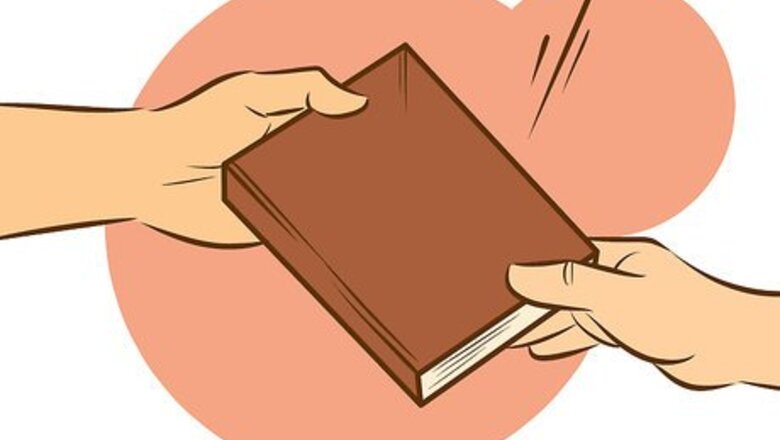
views
Making Use of an Old Bible
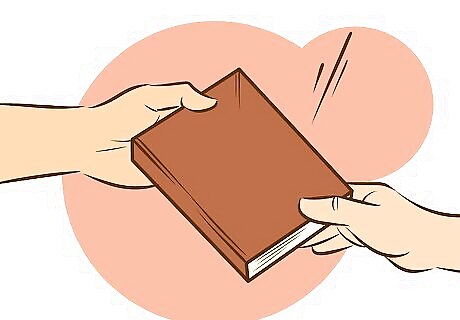
Donate it. If the Bible is in reasonable condition, consider donating it to a person or to a charity that will use it. This allows someone else to experience the word of God who may otherwise not have had the opportunity. Below are just a few ideas for who you may want to donate your Bible to: Churches, who may in turn donate the book to the needy. Libraries, who may offer the book for checking out or sell it in a fundraiser. Thrift stores, who can offer the book for relatively cheap to someone who may need it. Christian homeless shelters, many of which offer prayer groups and bible study classes. The Gideons (Gideons International), who are a Christian group dedicated to distributing the Bible worldwide free of charge. Another similar Bible-distributing charity. For example, some charities will send Bibles to countries where people are persecuted for reading the Bible.
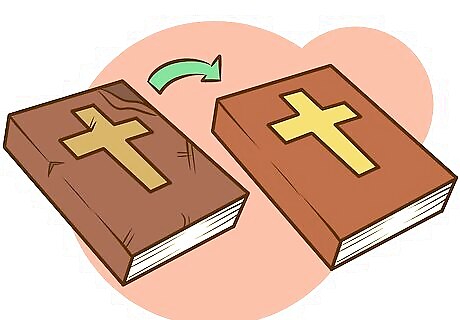
Have the Bible restored. Just because a Bible is old and worn doesn't necessarily mean it has to stay in that condition. Professional book repair and restoration services offer the ability to bring most old or damaged books back to a high level of quality (for a fee). Some of these services even allow you to ship your books to the restorers for repair. These types of services are a great choice for when your Bible carries some sort of sentimental significance. However, because restoration fees can be somewhat pricey, they may not make sense for ordinary Bibles.
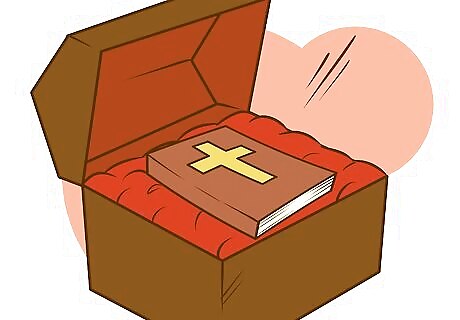
Save the Bible. Alternatively, you may want to keep the Bible, storing it safely so that its condition deteriorates no further. Though the Bible will no longer be practical for everyday use, it may be able to serve as a family heirloom for you to pass down to your children. This option is a good choice when the Bible has sentimental significance but is either too costly or too difficult to repair.
Respectfully Destroying a Bible
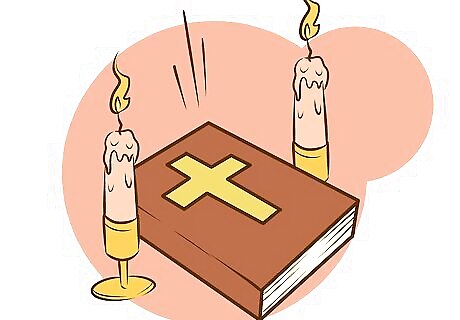
Show respect to the Bible. The Bible itself doesn't contain any special instructions for its own disposal. Though the word of God is considered by Christians to be holy and eternal, the physical document that contains the word is acknowledged as being neither. Still, with its millennia-long history, its billions of devotees, and its rich spiritual tradition, it's important to show the Bible the respect it is due, even if you're not Christian. Virtually any reasonable method of Bible disposal is appropriate as long as it's done with virtuous intentions and with careful respect. To show your respect, you may want to recite a prayer (or prayers) that hold(s) special meaning for you as you dispose of your Bible, though this is by no means required. Never destroy a Bible with a method that is deliberately irreverent. Though it's not inherently sinful to treat an object of paper and ink with disrespect, it is sinful to deliberately denigrate God.
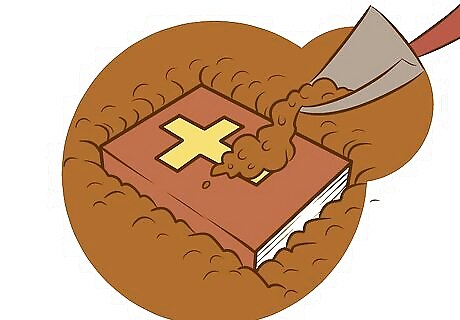
Bury the Bible. One way to dispose of an old Bible is to return it to the Earth with a respectful burial. The burial may be as "involved" as you'd like (within reason), though a humble burial is just as valid as one with more pomp and circumstance. Below are just a few ideas you may want to consider for your burial: Gathering with family members in quiet reflection Saying a prayer as the Bible is buried Enlisting the help of a priest to bless the Bible Marking the buried Bible's location with a small marker
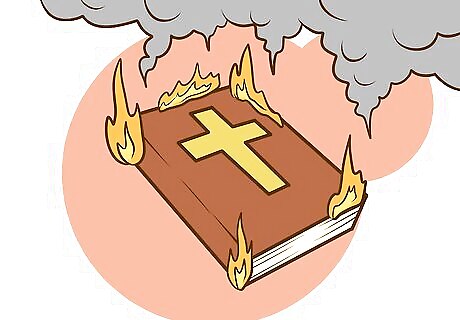
Cremate the Bible. Another way to dispose of a Bible is to respectfully cremate it (similar to how many national flags are retired). Though some who wish to disrespect or desecrate God's word do so by burning it, there is nothing inherently wrong with burning the physical Bible so long as proper solemnity and respect are observed. Generally, burning a Bible means building a bonfire or pyre large enough to completely burn the book up, then carefully placing the Bible in the fire and reverently watching as the Bible is burnt. As above, while cremating your Bible, you may want to consider saying a prayer, reflecting in silence, and so on.
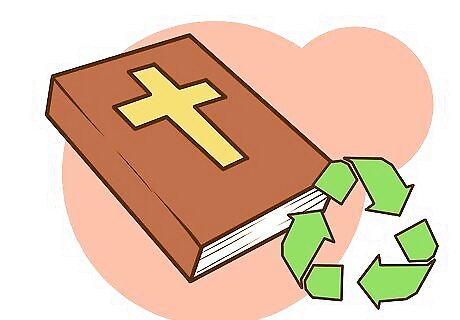
Recycle the Bible. Finally, since the Bible is made out of paper, you may want to dispose of it by recycling it. This is an especially good choice if you're interested in serving God by preserving the natural beauty of his Earth, as recycling reduces the need to cut down trees for new paper. However, for many, "throwing out" the Bible in the same way as they might throw out ordinary paper trash can feel wrong, regardless of the intent of the act. In this case, you may want to create a special vessel for the Bible to separate it from the rest of the trash by placing it in its own bag or box.

In special cases, defer to the advice of your personal priest or reverend. Though most Christian churches will accept nearly all methods of Bible disposal so long as they are performed with good intentions and proper respect, some select Christian churches may hold that it is sinful to destroy the physical vessel of God's word regardless of how or why it is done. If you subscribe to the beliefs of this type of church, you will probably want to consult with a member of your clergy to ensure that you dispose of the Bible according to your church's unique rules. In this case, follow the advice in the rest of this article only after receiving confirmation from a qualified member of your church.
Burying or Cremating a Bible
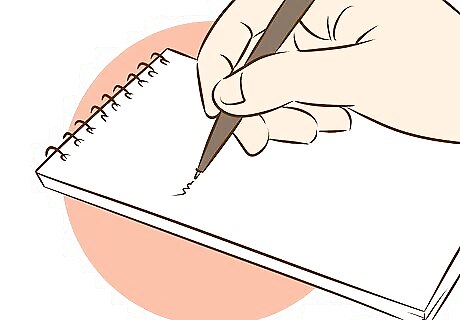
Leave specific instructions in your will as to the disposal of your Bible. Make sure your family knows where these instructions are located. If you have a pre-paid funeral plan, make sure the funeral director knows of your wishes to have the Bible buried or cremated with you.
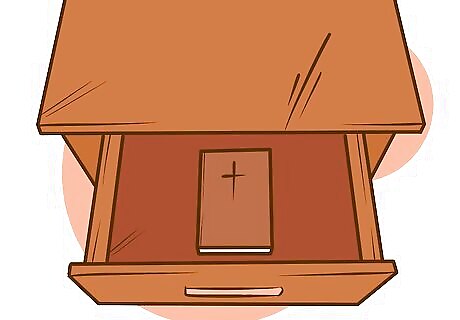
Be sure to designate where the dedicated Bible is generally located in your home. This is especially important if you have more than one Bible.

Have the deceased hold the Bible in the casket for viewing.
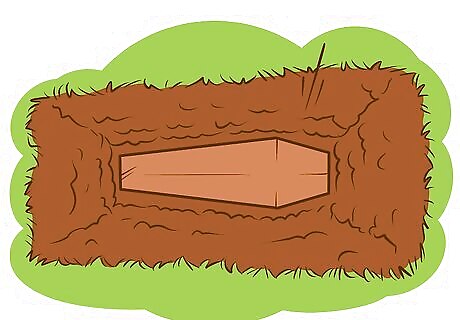
Have the Bible buried with you (or cremated) at the funeral.















Comments
0 comment